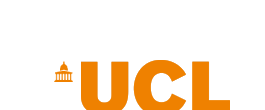COMP0145 Applied Business and Marketing Strategy for Disability Developments
This database contains the 2018-19 versions of syllabuses.
Note: Whilst every effort is made to keep the syllabus and assessment records correct, the precise details must be checked with the lecturer(s).
Academic session | 2019 - 20 |
Module | Research Methods and Making Skills |
Code | COMP0145 |
Module Delivery | 1920/A7P/T1/COMP0145 |
Related deliveries | None |
Prior deliveries | 2019 will be the first delivery |
Level | Postgraduate |
FHEQ Level | L7 |
FHEQ credits | 15 |
Term | Term 1 |
Module leader | Holloway, Catherine |
Contributors | Cho, Youngjun |
Module administrator | Adams, Aeesha |
Aims
This module will equip students with the basics of: qualitative research methods, quantitative research methods, basic coding and making skills.
The module is designed to be aligned with the 30 credit Future Global Technologies for Disability and Development module and will be a split of practical workshops and lab sessions in the Institute of Making as well as more formal seminars and computer lab sessions.
Learning Outcomes
- Making Skills
Students will be able to:
- Create prototypes using a range of methods and materials
- Know where to find more information on material properties to inform design choices
- Use making as a design tool
- Research Skills
Students will be able to:
- Choose an appropriate study design and statistical test
- Describe biases and errors in data types
- Design co-design workshops, semi-structured interview plans and questionnaires
- Use thematic analysis to code the interviews and questionnaires
- Visualise quantitative data sets for exploratory and explanatory purposes
- Computing Skills
Students will be able to:
- Understand variables, looping and structures of basic scripting
- Create simply Python and Arduino programs of basic scripting
- Create physical computing prototypes with Arduino (or similar) platforms
- Transferable Skills
Students will be able to:
- Deliver concise, informative presentations
- Develop clear project plans
- Develop self-reflection
- Communicate in a cross-disciplinary team
- Communicate and advocate with disabled people
Availability and prerequisites
This module delivery is only available for selection on the below-listed programmes. The relevant programme structure will specify whether the module is core, optional, or elective.
In order to be eligible to select this module as optional or elective, where available, students must meet all prerequisite conditions to the satisfaction of the module leader. Places for students taking the module as optional or elective are limited and will be allocated according to the department’s module selection policy.
Programmes on which available: |
|
Prerequisites: | Students will be expected to complete the online introductory course before joining in Term 1. The module will be restricted to MSc Disability, Design, and Innovation for 2019 – 2020. |
Content
Making & Computing 101
- Paper & Cardboard prototyping
- Materials and their properties
- 3D printing
- Laser Cutting
- Microcontroller programming (Arduino & Python)
Co-design Methods
- Data Collection in the wild (using Arduino or similar)
- Interviews & Questionnaires
- Thematic analysis framework
- Co-design workshops
- Participatory Photography
Statistics & Data Visualisation (All through Python & R)
- Types of data
- Parametric methods
- Non-parametric methods
- Knowing what type of test to use when
- Bias and error reporting
- Creating meaningful visualisations
Delivery
The module is delivered through a mixture of classroom-based lectures, seminars and laboratory/studio time.
Assessment
# | Title | Weight (%) | Notes |
1 | Exam (2 Hours) | 70 |
|
2 | Portfolio | 30 |
|





